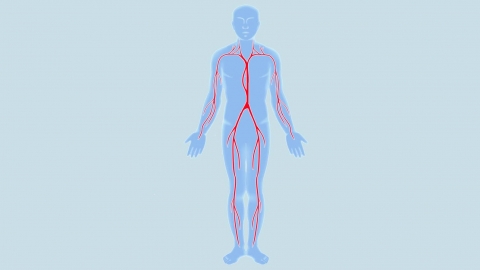What are the functions of the vagus nerve?
Under normal circumstances, the vagus nerve functions to regulate heart rate, lower blood pressure, promote gastrointestinal motility, increase secretion of digestive fluids, and regulate respiration. The specific functions are as follows:

1. Regulate Heart Rate
The vagus nerve releases acetylcholine, which acts on areas of the heart such as the sinoatrial node and atrioventricular node, inhibiting the automaticity of cardiac pacemaker cells, thereby slowing heart rate. This regulatory function helps maintain normal cardiac function and prevents excessive cardiac workload caused by rapid heart rates.
2. Lower Blood Pressure
The vagus nerve can cause vasodilation, especially of peripheral small arteries, thereby lowering blood pressure. Its mechanism of action mainly involves the release of acetylcholine acting on M receptors of vascular smooth muscle, resulting in relaxation of the vascular smooth muscle. This helps maintain stable blood pressure and prevents damage to organs such as the heart, brain, and kidneys caused by high blood pressure.
3. Promote Gastrointestinal Motility
When the vagus nerve is stimulated, it releases acetylcholine and certain peptide substances that stimulate contraction of the smooth muscles of the gastrointestinal tract, thus promoting gastrointestinal motility. This helps maintain normal digestive system function, prevents food retention in the gastrointestinal tract, and reduces the occurrence of indigestion and constipation.
4. Increase Secretion of Digestive Fluids
The vagus nerve can stimulate glands in the gastrointestinal tract to secrete digestive fluids. At the same time, it can also stimulate the pancreas to secrete pancreatic juice, which contains various digestive enzymes that aid in the digestion and breakdown of proteins, fats, and carbohydrates in food. This helps improve the efficiency of food digestion and promotes the absorption of nutrients.
5. Regulate Respiration
The vagus nerve can regulate respiratory rate and depth by influencing the activity of the respiratory center. When the vagus nerve is stimulated, respiratory rate slows and depth increases. When the vagus nerve is inhibited, respiratory rate increases and depth becomes shallower. This regulatory function helps maintain oxygen supply and carbon dioxide elimination in the body and preserves normal respiratory system function.
When vagus nerve function becomes disordered, it may lead to a series of uncomfortable symptoms, so timely medical consultation and treatment are necessary.










